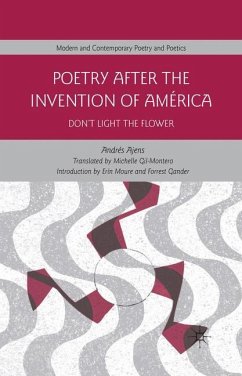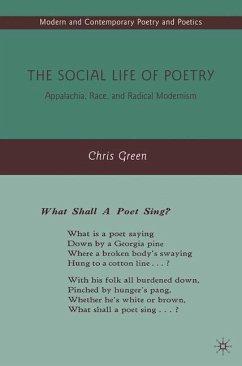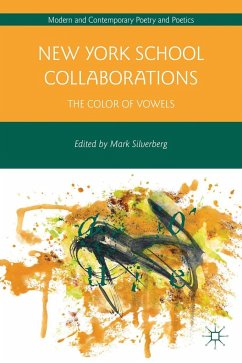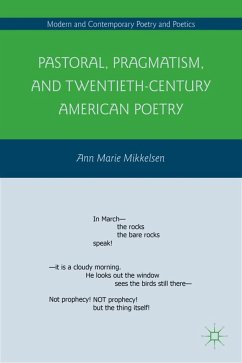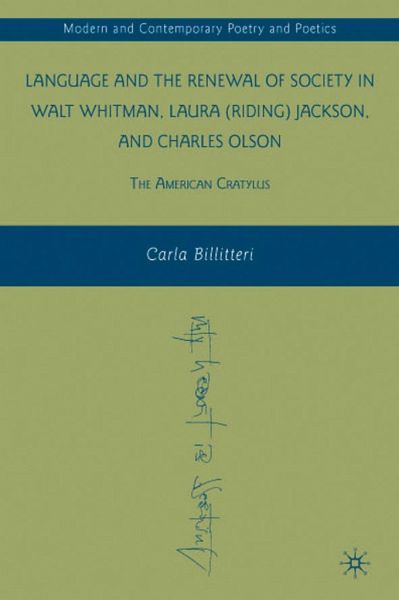
Language and the Renewal of Society in Walt Whitman, Laura (Riding) Jackson, and Charles Olson
The American Cratylus
Versandkostenfrei!
Versandfertig in 6-10 Tagen
38,99 €
inkl. MwSt.

PAYBACK Punkte
19 °P sammeln!
This book takes up the utopian desire for a perfect language of words that give direct expression to the real, known in Western thought as Cratylism, and its impact on the social visions and poetic projects of three of the most intellectually ambitious of American writers: Walt Whitman, Laura (Riding) Jackson, and Charles Olson.








